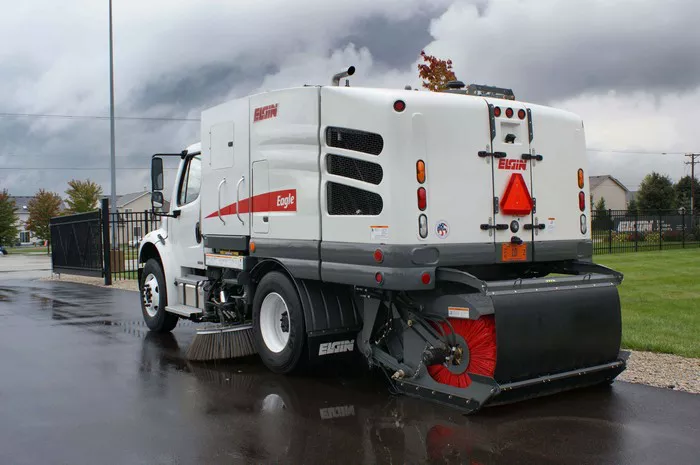Street sweepers are essential for maintaining clean and safe urban environments. They help remove debris, litter, and pollutants from the streets, contributing to both the aesthetic appeal and overall health of our cities. However, many people wonder if street sweepers continue their work during rainy days. This article will explore the reasons behind street sweeping schedules, the impact of weather on street sweeping operations, and provide a detailed analysis of how and why street sweepers may or may not operate during rainy conditions.
Understanding Street Sweeping Operations
What Is Street Sweeping?
Street sweeping is the process of cleaning the streets using specialized vehicles equipped with brushes, vacuums, and water sprayers. These vehicles are designed to remove litter, leaves, dirt, and other debris that accumulates on roadways. The main goals of street sweeping are to improve the appearance of streets, reduce pollution, and ensure road safety.
Why Is Street Sweeping Important?
Street sweeping plays a crucial role in urban maintenance. It helps prevent pollution by collecting debris that might otherwise wash into storm drains and eventually into water bodies. This helps reduce water pollution and keeps the environment cleaner. Additionally, street sweeping removes potential hazards like broken glass and loose debris, which can cause accidents or damage vehicles.
Street Sweeping Schedules
Regular Street Sweeping Schedules
Many cities have regular street sweeping schedules to ensure that streets are cleaned consistently. These schedules often involve sweeping on a specific day of the week or month. The timing and frequency can vary based on the city’s needs, the volume of traffic, and local regulations.
Impact of Weather on Scheduling
Weather conditions can significantly impact street sweeping schedules. Factors such as rain, snow, and extreme temperatures can affect the effectiveness and safety of street sweeping operations.
See Also: Will Street Sweepers Work on Martin Luther King Day?
Street Sweeping and Rainy Days
Challenges of Sweeping During Rain
Rainy weather presents several challenges for street sweeping. The primary issue is that rain can make streets slippery, which poses a safety risk for both the operators and the street sweeper vehicles. In addition, wet conditions can reduce the effectiveness of street sweeping because debris and litter become more challenging to collect when they are wet and muddy.
Street Sweeping Equipment and Rain
Modern street sweepers are equipped with various features designed to handle different conditions. However, heavy rain can still impact their performance. The brushes and vacuums used in street sweepers are optimized for dry conditions, and when streets are wet, debris can stick to the pavement and become harder to remove.
Operational Decisions on Rainy Days
Many cities have policies in place regarding street sweeping during inclement weather. Often, street sweeping operations are suspended during heavy rain to prevent accidents and ensure the effectiveness of the cleaning process. Some cities might adjust their schedules or focus on different areas depending on the severity of the weather.
Case Studies and Examples
City Policies on Rainy Day Street Sweeping
Different cities have varying policies regarding street sweeping during rain. For example:
City A: In City A, street sweeping is generally paused during heavy rain. The city focuses on street cleaning during dry periods to ensure that the equipment operates efficiently and safely.
City B: City B employs street sweepers equipped with specialized features that allow them to operate in light rain. However, in cases of heavy rainfall, street sweeping operations are typically halted.
Effectiveness of Street Sweeping in Rain
Studies have shown that street sweeping in the rain can be less effective compared to dry conditions. The collection of debris is often reduced, and the risk of damaging the equipment increases. As a result, many cities opt to reschedule sweeping operations to avoid these issues.
Alternative Strategies for Rainy Days
Adjusting Schedules
Cities often adjust street sweeping schedules to accommodate for rainy days. This may involve rescheduling sweeps to drier periods or prioritizing certain areas that require immediate attention.
Use of Different Equipment
Some municipalities invest in street sweeping equipment that is better suited for wet conditions. These specialized vehicles are designed to handle the challenges of rainy weather more effectively, although they are typically more expensive and may still face limitations.
Community Impact and Public Awareness
Communicating Schedule Changes
It is essential for cities to communicate any changes in street sweeping schedules to residents. This can be done through various channels, including local news, social media, and community bulletins. Keeping the public informed helps reduce confusion and ensures that residents are aware of when to expect street sweeping in their area.
Public Responsibilities
Residents also have a role to play in maintaining clean streets. This includes adhering to parking regulations on scheduled sweeping days and minimizing littering. By working together, communities can help ensure that street sweeping remains effective, even during challenging weather conditions.
Conclusion
Street sweepers are a vital part of urban maintenance, helping to keep streets clean and safe. While rainy days present challenges for street sweeping operations, many cities have developed strategies to address these issues. Whether through adjusting schedules or using specialized equipment, the goal remains to maintain clean streets and reduce pollution.
Understanding the impact of weather on street sweeping helps residents appreciate the complexities involved in keeping cities clean. By staying informed and participating in community efforts, everyone can contribute to a cleaner, safer urban environment.
This comprehensive overview of street sweeping operations during rainy days highlights the importance of effective urban maintenance and the efforts made to ensure that street sweeping remains a valuable and effective service, even in less-than-ideal weather conditions.

